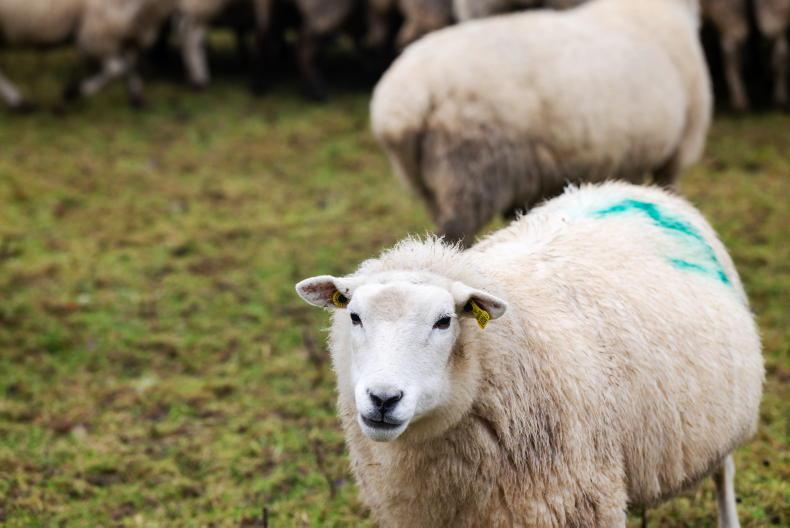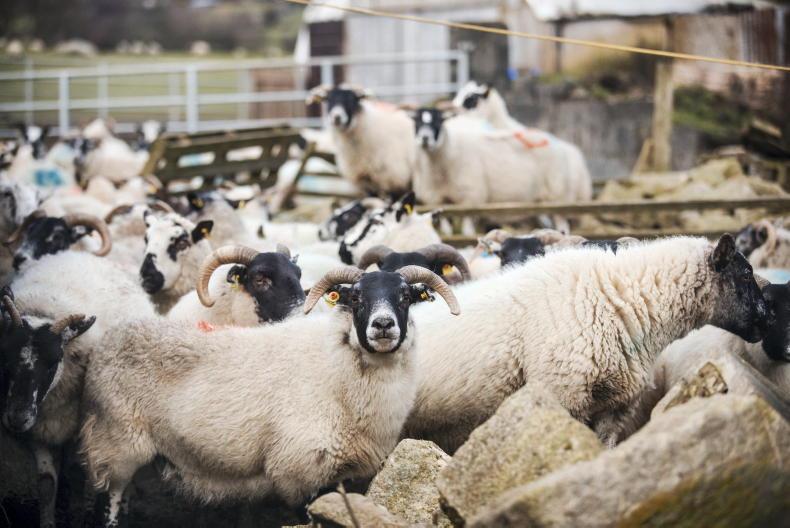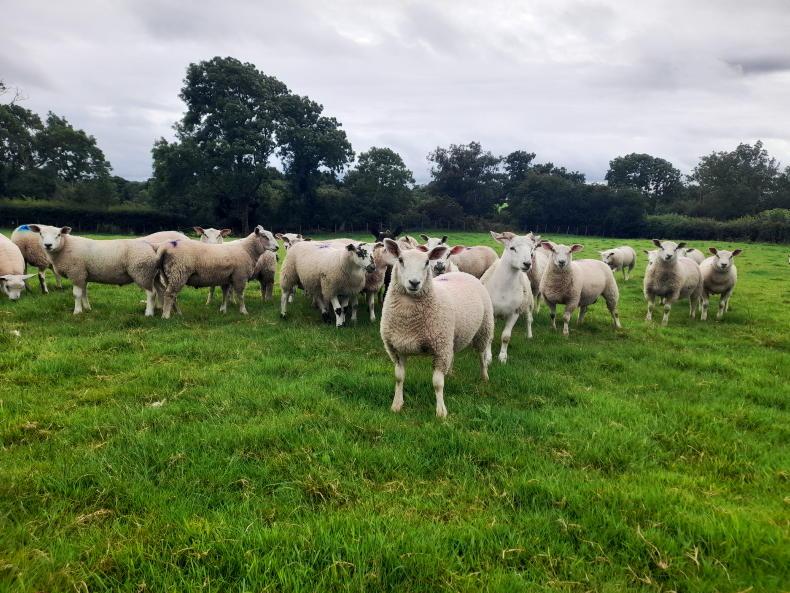It must rank as the biggest wakeup call since Prince Charming kissed the lips of Sleeping Beauty.
And similar to that story, the outcome has been largely positive, although when you’re in the middle of a nematodirus outbreak, it is hard to imagine those suffering lambs ever looking normal again.
I haven’t been caught out as badly as this for decades (or ever, maybe) and I don’t really have an excuse to deflect the blame away from poor management and general oversight.
With the benefit of hindsight, I think I inadvertently created the perfect storm and hopefully it has sharpened my reactions for years to come. So, what happened? Here is my interpretation of events:
Having extra housing (with empty poultry sheds) seemed to be something of a godsend during poor weather. I set one of them up for a batch of triplets, and the occasional ewe with a broken udder. This meant I had solved the eternal problem of how to best rear those vulnerable types of lamb.
It was simple really; keep them in the house for an extra two or three weeks, feed them as much meal as they could eat twice a day, pretend meal was £150/t (that bit is absolutely vital – under no circumstances add up the daily feed costs), and Bob’s your uncle: good strong lambs, eating creep meal before going to pasture, with mums that were all steamed up and effortlessly rearing multiples.
Out to grass
So far, so good, and I turfed them out to grass while congratulating myself on a job well done. Indeed, I could feel an article for the paper looming in the background, and I was idly wondering how to downplay it so as not to come across as smug and brilliant at the same time. I needn’t have worried.
I suspect these stronger than normal lambs went out and immediately ate significant quantities of fresh grass, without the usual slow increase in daily intake.
After a week, I noticed them eating less creep and mistakenly marvelled at the quality grass in front of them.
But the biggest problem was the grass, because this field had lambs grazing last year also (I normally try to put vulnerable lambs onto clean swards). Therefore, they were classic cases for a nematodirus outbreak and boy did they succumb.
Time to panic
Over a period of what seemed like two or three days, they went from small, lively lambs to being dull and lethargic with half of them showing wet, dirty backends. It was time to panic.
We immediately dosed them and gave the worst-looking ones a shot of long-acting antibiotic too. Back to the field they went, but three days later, their appearance would still have frightened you. Of course, they were in a field beside the road, so heaven knows what passing neighbours thought I was up to.
So, we brought them back in again, and dosed them with toltrazuril in case coccidiosis was working on them as well. (It probably was, since it would have a habit of attacking any gut that was under stress).
After a week, they had improved slightly; after 10 days things had significantly turned around, but I would say it was a fortnight before they were behaving like normal, healthy animals.
One of the indicators was the steady increase in creep meal consumption, and I am delighted to say that they are now flying along, eating their bodyweight in concentrate, and costing me an absolute fortune.
Outcome
At the heels of the hunt, I had one dead lamb, two of them are horrible looking rats and have been transferred to the pet lamb regime, and the rest are looking as well as you can expect from triplets.
It is easy to look back now with a degree of humour at how much this small incident managed to upset me. How come I could think of nothing else except those 40 sick lambs, and was completely unable to balance that against the batch of 60 doubles in the next field?
These doubles are grazing a clean sward (no sheep at all for 12 months) and are thriving well, with not a dirty tail in sight.
I wonder how many other farmers are like me, and are far too good at focusing on the negatives when something starts to go wrong?
Read more
Distinguishing between coccidiosis and nematodirus
Farmer Writes: no regrets having less work to do
It must rank as the biggest wakeup call since Prince Charming kissed the lips of Sleeping Beauty.
And similar to that story, the outcome has been largely positive, although when you’re in the middle of a nematodirus outbreak, it is hard to imagine those suffering lambs ever looking normal again.
I haven’t been caught out as badly as this for decades (or ever, maybe) and I don’t really have an excuse to deflect the blame away from poor management and general oversight.
With the benefit of hindsight, I think I inadvertently created the perfect storm and hopefully it has sharpened my reactions for years to come. So, what happened? Here is my interpretation of events:
Having extra housing (with empty poultry sheds) seemed to be something of a godsend during poor weather. I set one of them up for a batch of triplets, and the occasional ewe with a broken udder. This meant I had solved the eternal problem of how to best rear those vulnerable types of lamb.
It was simple really; keep them in the house for an extra two or three weeks, feed them as much meal as they could eat twice a day, pretend meal was £150/t (that bit is absolutely vital – under no circumstances add up the daily feed costs), and Bob’s your uncle: good strong lambs, eating creep meal before going to pasture, with mums that were all steamed up and effortlessly rearing multiples.
Out to grass
So far, so good, and I turfed them out to grass while congratulating myself on a job well done. Indeed, I could feel an article for the paper looming in the background, and I was idly wondering how to downplay it so as not to come across as smug and brilliant at the same time. I needn’t have worried.
I suspect these stronger than normal lambs went out and immediately ate significant quantities of fresh grass, without the usual slow increase in daily intake.
After a week, I noticed them eating less creep and mistakenly marvelled at the quality grass in front of them.
But the biggest problem was the grass, because this field had lambs grazing last year also (I normally try to put vulnerable lambs onto clean swards). Therefore, they were classic cases for a nematodirus outbreak and boy did they succumb.
Time to panic
Over a period of what seemed like two or three days, they went from small, lively lambs to being dull and lethargic with half of them showing wet, dirty backends. It was time to panic.
We immediately dosed them and gave the worst-looking ones a shot of long-acting antibiotic too. Back to the field they went, but three days later, their appearance would still have frightened you. Of course, they were in a field beside the road, so heaven knows what passing neighbours thought I was up to.
So, we brought them back in again, and dosed them with toltrazuril in case coccidiosis was working on them as well. (It probably was, since it would have a habit of attacking any gut that was under stress).
After a week, they had improved slightly; after 10 days things had significantly turned around, but I would say it was a fortnight before they were behaving like normal, healthy animals.
One of the indicators was the steady increase in creep meal consumption, and I am delighted to say that they are now flying along, eating their bodyweight in concentrate, and costing me an absolute fortune.
Outcome
At the heels of the hunt, I had one dead lamb, two of them are horrible looking rats and have been transferred to the pet lamb regime, and the rest are looking as well as you can expect from triplets.
It is easy to look back now with a degree of humour at how much this small incident managed to upset me. How come I could think of nothing else except those 40 sick lambs, and was completely unable to balance that against the batch of 60 doubles in the next field?
These doubles are grazing a clean sward (no sheep at all for 12 months) and are thriving well, with not a dirty tail in sight.
I wonder how many other farmers are like me, and are far too good at focusing on the negatives when something starts to go wrong?
Read more
Distinguishing between coccidiosis and nematodirus
Farmer Writes: no regrets having less work to do









SHARING OPTIONS